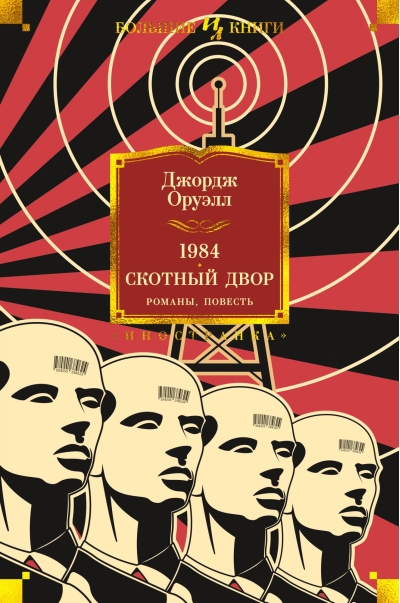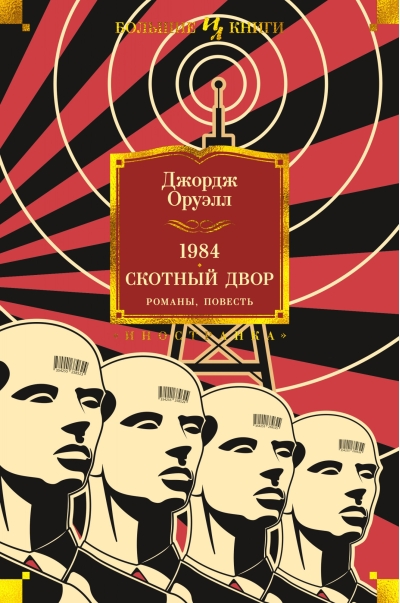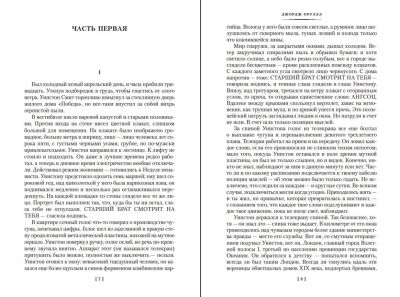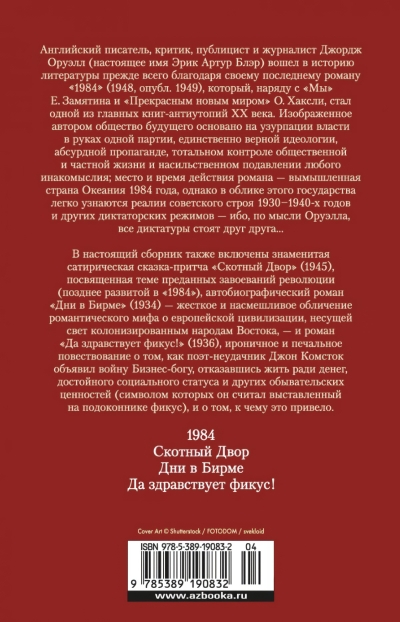1984. Animal Farm. Novels, novella
14.99 €
In stock
English writer, critic, publicist, and journalist George Orwell (real name Eric Arthur Blair) entered literary history primarily through his final novel, 1984 (1948, published 1949), which became one of the most important dystopian books of the 20th century.
The author's depicted future society is based on total lack of individual freedom, propaganda, and outright violence—all of which, according to the author's bitter and ominous prediction, have triumphed in the fictional state of Oceania by 1984; However, in its appearance, the realities of the Soviet regime of the 1930s and 1940s and other dictatorial regimes are easily recognizable—for, according to Orwell, all dictatorships are worth one another...
This collection also includes the famous satirical fairy tale-parable "Animal Farm" (1945), dedicated to the theme of the betrayed conquests of the revolution (later developed in "1984"), the autobiographical novel "Burmese Days" (1934)—a harsh and mocking denunciation of the romantic myth of European civilization bringing light to the colonized peoples of the East—and the novel "Long Live the Ficus!" (1936), an ironic and sad story about how the unsuccessful poet John Comstock declared war on the Business God, refusing to live for money, decent social status and other philistine values (symbolized by the ficus plant on his windowsill) – and what this led to.
The author's depicted future society is based on total lack of individual freedom, propaganda, and outright violence—all of which, according to the author's bitter and ominous prediction, have triumphed in the fictional state of Oceania by 1984; However, in its appearance, the realities of the Soviet regime of the 1930s and 1940s and other dictatorial regimes are easily recognizable—for, according to Orwell, all dictatorships are worth one another...
This collection also includes the famous satirical fairy tale-parable "Animal Farm" (1945), dedicated to the theme of the betrayed conquests of the revolution (later developed in "1984"), the autobiographical novel "Burmese Days" (1934)—a harsh and mocking denunciation of the romantic myth of European civilization bringing light to the colonized peoples of the East—and the novel "Long Live the Ficus!" (1936), an ironic and sad story about how the unsuccessful poet John Comstock declared war on the Business God, refusing to live for money, decent social status and other philistine values (symbolized by the ficus plant on his windowsill) – and what this led to.
See also:
- All books by the publisher
- All books by the author
- All books in the series Foreign Literature. Large Books











